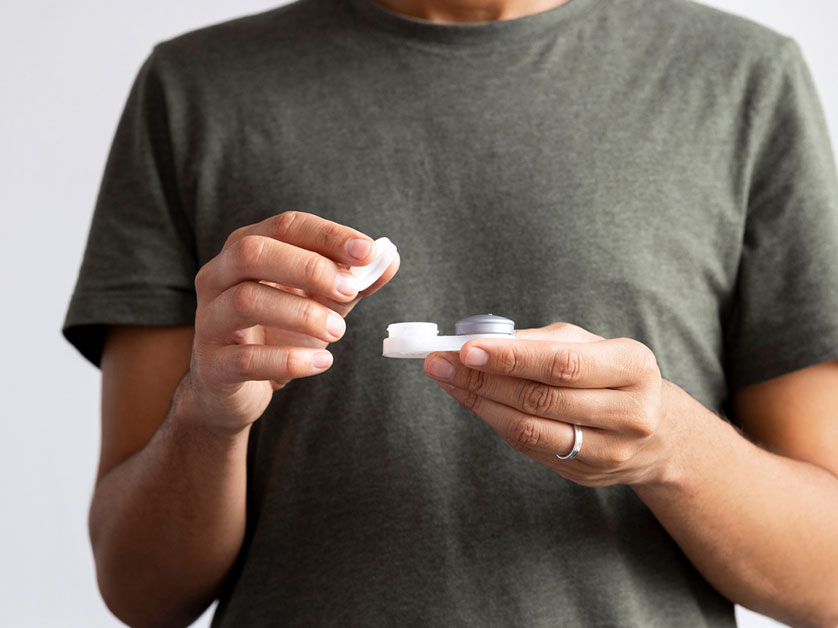Contact lenses are marvels of optical technology. They sit comfortably on your eyes all day, giving you an almost natural vision. Once you slip them into your eyes, the world is suddenly in clear focus. Read on to learn how contacts are made.
Soft Contact Lenses
Silicone hydrogels or hydrogels are often used to create soft contact lenses. Crafting these lenses requires precision and care. Mixing an accurate amount of monomer with a catalyst is necessary to initiate a reaction. This liquid mixture is then carefully poured into a mold according to the measurements of a patient’s eye. After this step, the mold will be heated, causing the monomer to polymerize and form a soft, flexible plastic.
To make the polymer soft and flexible, experts soak them in saline hydrates. A thorough inspection follows to ensure there are no imperfections or defects. Only lenses that pass a rigorous quality check are packaged and sent to optometrists.
Gas Permeable Contacts
Rigid gas permeable (RGP) lenses use a firm, durable plastic material that allows oxygen to pass through the eyes. They are more durable and longer-lasting than soft lenses. However, they have an extended adaptation period as they are initially less comfortable than soft lenses.
The manufacturing process of RGP lenses begins with a plastic disc latched in a computer-controlled machine to create the lens. The front and back surfaces of the lenses are carefully shaped to the specific prescription and fit for the wearer. After shaping, they undergo polishing to ensure a smooth and comfortable fit. The lenses are then hydrated before undergoing quality control checks.
Hybrid Contact Lenses
Hybrid contact lenses have the comfort of soft contacts and the clarity of gas-permeable lenses. Eye doctors usually recommend them for patients with keratoconus, who find it difficult to wear regular contacts. They feature an RGP center surrounded by a soft lens skirt.
Crafting hybrid lenses starts with creating the RGP center. The process is similar to making RGP lenses, where the plastic is precisely shaped and polished. Adding the soft lens skirt follows once the center is complete. It involves a second molding process using a silicone hydrogel material. The resulting lens is then hydrated, inspected for quality and packaged for distribution.
Understanding the production of contact lenses can help you appreciate the science and technology behind them. Do you need a new pair of contacts? Spectrum Eye Care is ready to assist. Call us at (704) 817-4600 or complete our online form to schedule an appointment.

